Elections of Yerevan Council of Elders: Taron Margaryan, Zaruhi Postanjyan or Nikol Pashinyan?
This week’s topic for the “Pressing” Club under “168 Hours” newspaper is elections of Yerevan Council of Elders. The project is implemented in partnership with “DEPOP” Institute for Governance and “AZAD Pharma AG” ltd.
The debate was conducted by Satik Seyranyan, editor-in-chief of “168 Hours” newspaper, and the participants are: Anahit Bakhshyan, member of “Barev Yerevan” faction at Council of Elders of Yerevan, candidate for the member of the Council of Elders nominated by “Yelk” bloc, Margarit Yesayan, NA RPA faction MP and Hakob Badalyan, political commentator.
Satik Seyranyan: I propose to sum up parliamentary elections to understand what is anticipated at local self-government elections to be held on May 14. Many gave overall assessment to elections, that election fraud wasn’t recorded in the polling stations, however, prior to getting to the polling station, election bribe left a big impact on the electorate. Observation missions gave mild assessments and they were particularly stating on trustworthy reports on election bribe or frightening of voters, and the authorities, in their turn, stated that maybe such cases were recorded, but they didn’t have an essential impact on the course of elections.
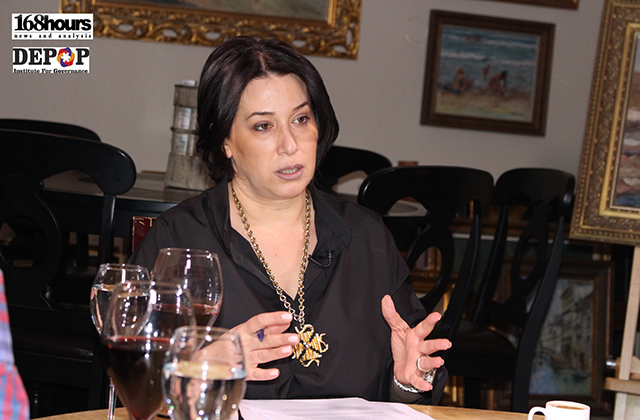
Mrs. Bakhshyan, do you agree with these assessments or not and why “Free Democrats” party, by the proportional list of which you’ve been nominated at NA elections, gained rather few votes?
Anahit Bakhshyan: Preparing for elections isn’t a matter of 2 months. The political power is getting prepared for elections for a lasting period, and it’s impossible to make any political party to be perceived by the electorate in a short period. When it was just started, people weren’t aware of “Free Democrats”. At a certain moment they started to learn the name, but I consider we failed to lead a literal campaign till the end, that would introduce our political team.
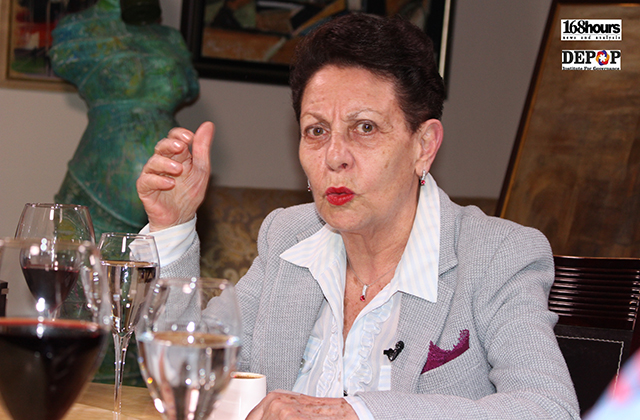
Satik Seyranyan: However, “Free Democrats” was the political power present in the parliament.
Anahit Bakhshyan: Under the name of “Heritage”.
Satik Seyranyan: Yes, but as processes were recorded there and, we may say “Heritage” faction was divided into several parts, “Free Democrats” reps already appeared by their own political party.
Anahit Bakhshyan: But they weren’t particularly active there, I don’t memorize that head of “Free Democrats” Khachik Kokobelyan make any statement. These two months weren’t enough that 4 different people came and gained people’s vote as a political team. Each of us, e.g. I thought the society knew us and may cast votes for us, however, people hit me well on the nose and said: so what? I know you, but you aren’t a member of a political team. Our people feel by the palate. There is election bribe, as it’s an alternative to not comprehending.
Satik Seyranyan: Did you feel that in meetings with voters?
Anahit Bakhshayn: Yes, I felt it…I felt from half of the campaign and I didn’t hide it. I felt and saw it.
Satik Seyranyan: How do you explain such a success by the RPA?
Anahit Bakhshyan: Success? What success do you mean? Of course, if we look to the figures, yes, it’s a rather good number, but people didn’t vote by heart, as a political power, which will change something in their lives.
Satik Seyranyan: In this case, why did they vote—was it the Prime Minister’s factor?
Anahit Bakhshyan: Of course, PM’s factor exists, his image and there is big trust towards himself, rather than toward RPA, and not accidentally, during the campaign RPA left government, country and etc. aside and brought the PM here and there for a month.
Margarit Yesayan: The PM is the Vice President of RPA.
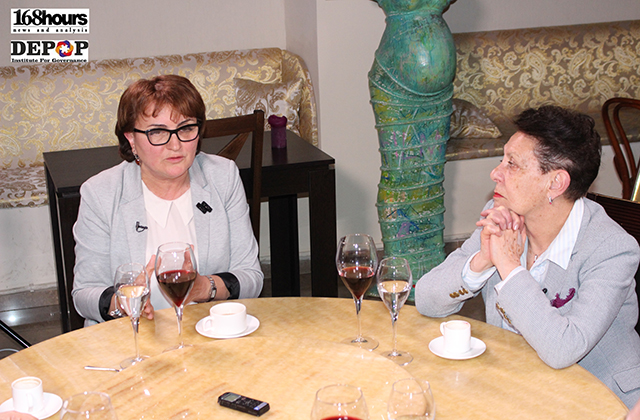
Anahit Bakhshyan: You can also call me a vice president.
Satik Seyranyan: Mrs. Yesayan, do you agree or not? What was it conditioned by? In any case, RPA kept its position by candidates nominated by preferential voting system…however, do you consider it success for RPA?
Margarit Yesayan: Frankly speaking I accept Anahit Bakhshyan as a political figure, and I consider, sincerity in politics is very important. Some don’t have it and appear with masks, I don’t like them. Mrs. Bakhshyan, I like a figure like you, at first I was enthusiastic that you are in “Free Democrats”, as the system of values they were touching upon, was partially acceptable for me as well (European system of values and etc.). I’ll also be so frank like you, I should say I regret that “Free Democrats” aren’t in the parliament now. Your campaign wasn’t bad. Only our people really are very conservative. No matter what different things we say about RPA or other political powers, our people don’t particularly strive for changes, they like stabile conditions, and they saw that stable condition and perspective for changes in Karen Karapetyan’s image.
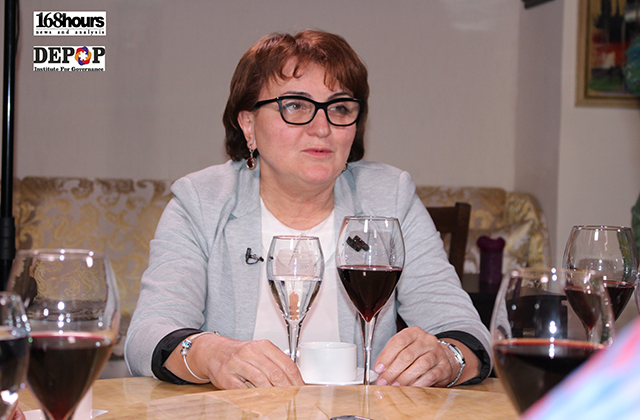
Satik Seyranyan: Eduard Sharmazanov disagreed with that view.
Margarit Yesayan: Our team succeeded to appear with a new face.
Anahit Bakhshyan: Now everything will be put on Karen Karapetyan, and what isn’t done, they’ll say it did Karapetyan.
Margarit Yesayan: Just the contrary, we all are responsible, we are members of that team and I, as an ordinary party member, and he, as the first deputy of the party’s president, each of us is responsible, of course. And our people chose the way to believe, which rejoices me. However, this means that more responsible burden was put on each RPA member, as we should justify that belief.
Anahit Bakhshyan: What were you doing prior to this?
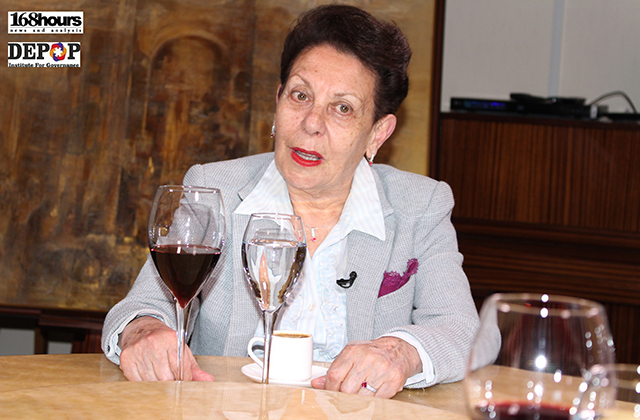
Margarit Yesayan: Until now we were attempting to justify, we either succeeded or no, but now we have reached to the point that we have no way backward. We should justify that belief, as concern about the country, responsibility, love, optimism, all this was again put on the political power, which I currently represent. I repeat, the burden is heavier now. At least now, like in the well-known movie I feel pressure of mercury more, than 3 or 4 years as currently the optimistic note, we made the perspective for changes more visible through new images, we were introduced with a new say.
Anahit Bakhshyan: When will we see the results?
Margarit Yesayan: We’ll gradually see the results, through evolution, not by revolution, and I’m sure we’ll see. At least for me it’ll be very disappointing if our society doesn’t see the result.
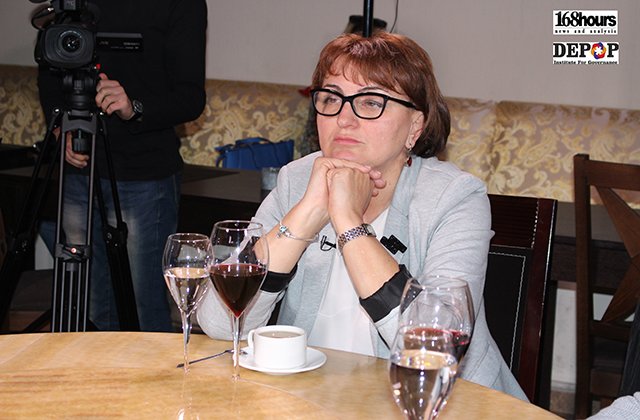
Anahit Bakhshyan: Margarit, you said the same 5 years ago as well…
Margarit Yesayan: Yes, but many things have changed. For instance, at least through my image you saw that many things have changed, you saw that 5 years ago people came to the parliament, who are able to introduce stance of the country and the speak in different languages before different instances, are able to express their ideas and spread political activity. You saw that in the past 5 years many changes have been recorded, and now—even more. That’s why I say this is going to be an evolutional change.
Anahit Bakhshyan: I’m the one, who wants the most.
Satik Seyranyan: Hakob, as a reporter, analyst and political commentator, you remember that prior to all elections the same talks are heard. By what these elections differ from former parliamentary elections and was social reaction adequate and we should rejoice that post-election developments haven’t been recorded?
Hakob Badalyan: Public reaction is always adequate to the situation, i.e. I think people didn’t generally make a choice between political powers, no matter how good or bad it might be, they didn’t even elect RPA, moreover, they couldn’t vote for RPA. People can’t choose their bad lives, there is no other choice from the bad life, and I consider, they have voted for the day’s issue. For one of them day’s issue was the administrative resource, on which he/she depends to work and not to have an issue, for the other 10 thousand drams election bribe, i.e. people didn’t see any perspective solution.
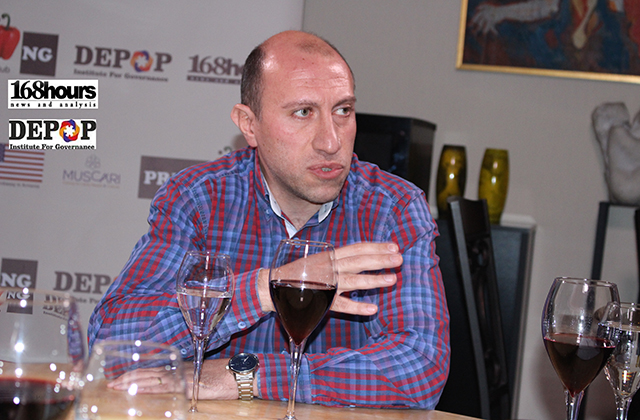
Satik Seyranyan: Why they didn’t believe, e.g. “Tsarukyan” bloc leader, who said he’ll do so many investments and etc.?
Hakob Badalyan: For instance, for the reason that the party has an activity of already 10 years and people perfectly realize that he has issues with the authorities (they don’t play a theater, there is no any issue) and border of those issues ends where interests of PAP leader end, i.e. prior to that maybe there are issues with the authorities, after that those issues turn into shared interests.
Satik Seyranyan: That is to say, the society felt it, right?
Hakob Badalyan: The society sees that, people perfectly realize, anything occurring in Armenia today isn’t a secret to anyone I think. This country is so small that it’s impossible to depend on media outlets only, every person is a media outlet. People chose their daily issue and everyone found the solution. Political opposition is that they solve day’s issue, naturally they can’t propose, as they don’t have those leverages. Any public ideology isn’t proposed. At large it wasn’t proposed. If during the previous elections the “I’m a good one, that one is bad” mechanism somewhat worked, i.e. people attempted to cast their votes for the good one, now they see voting for the good one will change nothing, i.e. what should be done with those votes? That good one doesn’t know.
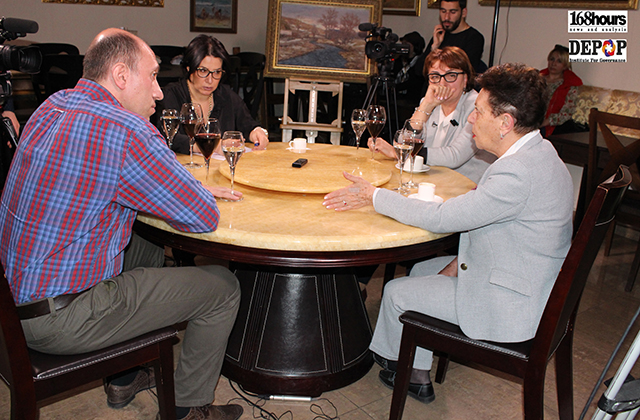
Finally, it comes to physical clash with the authorities, where the latter win, or it reaches to nullification of votes through evolution (I don’t mean prayer). People saw these mechanisms, their productivity, now they don’t see anything, and they chose day’s issue. Let’s leave aside its being good or bad. Of course, it’s bad, when the administrative resource and election bribe are functioning, however, we can’t fight against this through preachy lectures, to assess that it’s bad, it’s this type of a society and etc. People only need choice, some option, mechanism should be proposed to them.
Satik Seyranyan: But this time people had big choice.
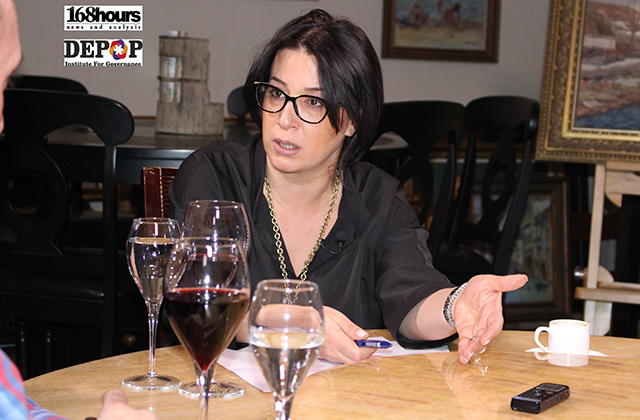
Hakob Badalyan: The mechanism was again as follows: we are good, the authorities are bad. Everybody knew that the authorities are bad, it’s another issue that all also consider that those in the opposition aren’t good either, let’s leave it aside. Everybody knows that the authorities are bad, that through its leverages, resources the authorities have taken everything and won’t give. Now people are interested—does anyone have a mechanism to take? When for 25 years people are told: believe us, cast your vote for us and we’ll take, but nothing happens, a person doesn’t believe in that mechanism. When they say: vote for me, I’ll take it, a person doesn’t believe, and considers his/her vote is taken, through that vote they’ll solve their issues one day, a month or a year, and his/her issues will remain, these authorities will remain as well. Until we see what’s going on in the depth, until everything is diagnosed, until political powers give the diagnosis what is it connected to…if we attempt to diagnose the authorities, we may see those threads stretch and opposition-leadership ties are lost.
Satik Seyranyan: That is to say, they are the same.
Anahit Bakhshyan: Hakob, what do you say?
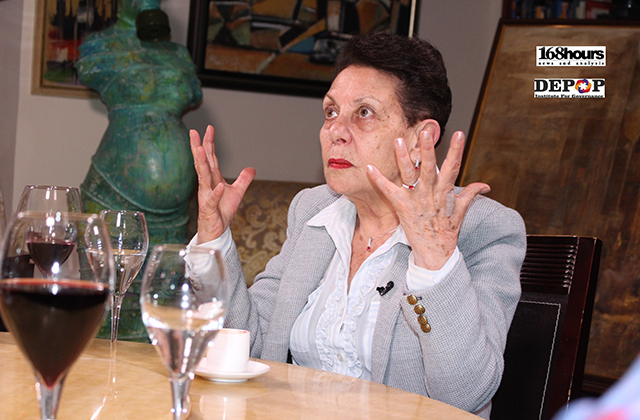
Hakob Badalyan: This situation is reflected through choice. We give various assessments to all this, however, a solution is necessary, people don’t see it and let me repeat—they choose day’s issue.
As for PM Karen Karapetyan’s role, I consider he didn’t bring votes for RPA. Karen Karapetyan succeeded to discharge the atmosphere a bit through his image, positive expectancies. Candidates nominated by preferential voting system provided votes for RPA, and I’d even say vote “scratchers”, as absolutely for that very purpose preferential voting system was installed, so that work on that level was more intensive.
Satik Seyranyan: As there were candidates nominated by preferential voting system, they have gained many votes than any party.
Hakob Badalyan: Yes, i.e. based on average statistics RPA candidates nominated by preferential voting system were more, i.e. optimization of work was carried out and those people provided votes.
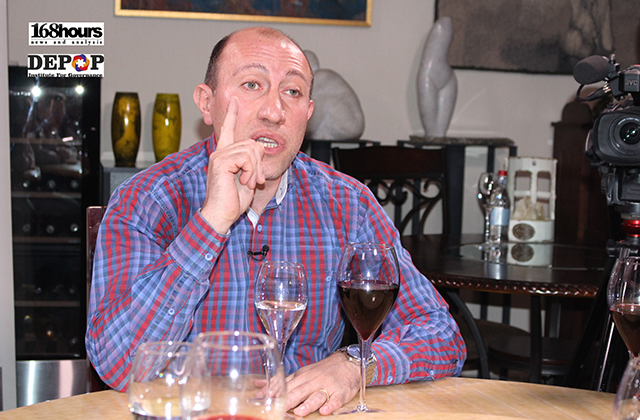
Margarit Yesayan: Excuse me, but Electoral Code provided the opportunity to be nominated by preferential voting system and that Electoral Code was approved by absolute majority of political powers, i.e. this Code wasn’t chosen by RPA. “4+4+4”, social organizations, let me not remind…i.e. all they gave the go-ahead for this Code.
Hakob Badalyan: Of course, I don’t want now to speak why it happened and why that OK was given, but it’s a fact.
Margarit Yesayan: You see, I mean only one side shouldn’t be blamed.
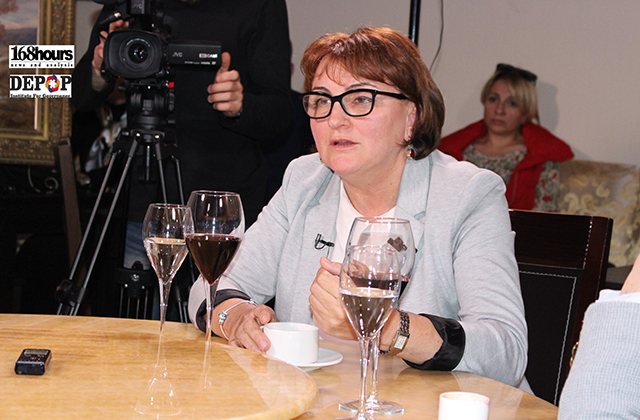
Hakob Badalyan: I don’t blame, I record the fact.
Margarit Yesayan: Yes, we gained votes, as people trusted us.
Satik Seyranyan: Various experts, politicians always said there is no ideological struggle in elections, however, this time there were political powers with exact ideology, e.g. ARF with its ideology, “Free Democrats” with stressed ideology, or ANC, which proposed formula of peace…Although we all demand ideological struggle from political powers, but when ideology is put, the society doesn’t reflect, it isn’t interested in it, finally it makes its choice conditioned by persons. Even ideology of peace brought forward by Levon Ter-Petrosyan, despite it wasn’t new, it didn’t work, which seemed to work to the point after the April war.
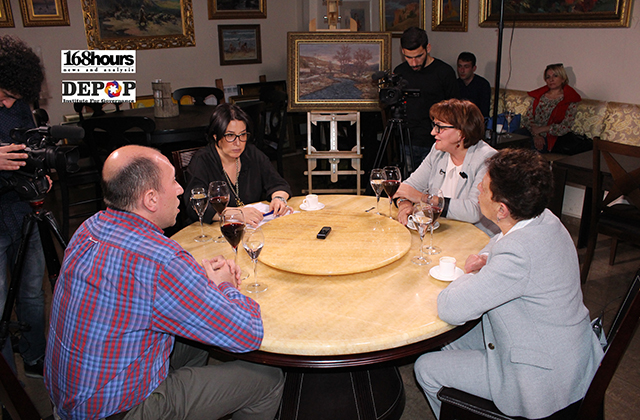
Hakob Badalyan: Just the contrary, I’d say that approach wouldn’t work after the April War. What did Levon Ter-Petrosyan say? He said, as Armenia is hang from status quo, i.e. actual responsibility is put on Armenia, and Azerbaijan’s policy was indirectly justified, i.e. Azerbaijan does well that shoots, as Armenia is stuck on status quo. How could this approach work after the April War? Finally, the society saw that war.
Satik Seyranyan: No, but it was also stated as long as the issue isn’t settled, we won’t have economically powerful state and will have constant threat of war, our sons will constantly fall on the border…This all is an issue touching the heart of the family.
Hakob Badalyan: This isn’t convincing either, as a citizen asks: in that case why in 2008 Artsakh issue wasn’t stressed, what’s the sense of fight, if we won’t have any economic or political results, as long as Artsakh issue hasn’t been resolved. Why was it stressed in 2017 only, that as long as the issue isn’t resolved nothing will happen? If nothing happens, why did ANC take part in elections of 2012, what was wrong with the issue, that in 2012 it wasn’t stressed, but something different was stressed? That is to say, in this regard it wasn’t absolutely convincing, and Levon Ter-Petrosyan’s proposal was rather simple—it was addressed to Serzh Sargsyan and geopolitical centers, that I can take this unpopular ideology on me and clearly express it and I can be useful as a political power in that regard. Neither geopolitical centers nor Serzh Sargsyan accepted it, or even if they accepted, finally, they failed to reach ANC from 1% to 7%. Maybe if they gained 5% and the authorities supported by 2%, I don’t know, but I disagree that Ter-Petrosyan’s idea should have worked especially after April.
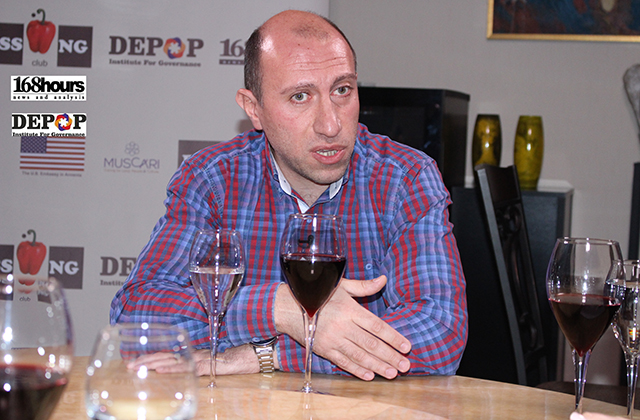
Satik Seyranyan: Well, how about other political powers?
Anahit Bakhshyan: Hrant Bagratyan said boosting our country’s economy isn’t connected to Artsakh issue, just the contrary, we can make it powerful and lead Artsakh issue settlement in that way.
Satik Seyranyan: Yes, it didn’t work either.
Hakob Badalyan: Let’s clarify one point. I reminded one thing: for 20 years the opposition told people that this leadership is seized, it said for 20 years that it’s illegally kept. Now, after saying this for 20 years you can’t convince: give your vote and I’ll take the leadership with vote. You convinced people that the issue won’t be solved through the vote, didn’t you? Accordingly, you should propose another mechanism. You can’t say my program is good, and a person says: so what if it’s good, RPA doesn’t give the leadership, I need a program of taking the leadership. Maybe a person is mistaken, but the experience of 20 years is solid experience, accordingly, political powers should attempt to take the leadership and come out of this mechanism of 20 years and propose something that at least in 5 years they’ll take the leadership, but proposed a different mechanism. Only in that case they’ll start assessing the programs, the ideologies.
Margarit Yesayan: Hakob, I partially agree with you, I agree that the opposition said this or that, but you don’t draw a conclusion. The conclusion is as follows: currently opposition political powers have lost trust in the society.
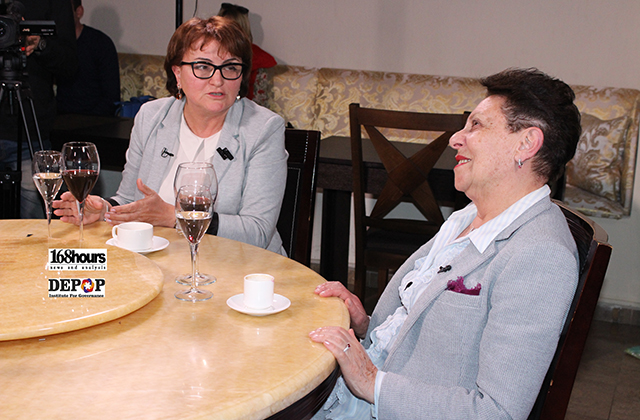
Anahit Bakhshyan: Do you want to say, that RPA has trust?
Margarit Yesayan: Yes, that’s why they gave their votes to the political power, in which they believed, and are ready to rely on.
Anahit Bakhshyan: Go on.
Hakob Badalyan: No, they aren’t ready to rely on RPA.
Margarit Yesayan: But opposition political powers have lost trust more, that the leading one. The leading political power always loses, as the burden is on it, it does the work, promises workplaces and does little or doesn’t do properly, or economy development slows down, people see no considerable changes in their lives or partially observe, it’s clear. We don’t give the leadership, the burden to anyone, it’s on us. However, on the other hand, let’s look what goes on in the opposition field. You perfectly describe saying by entering to the parliament what tricks those powers do, i.e. trust limit inside the society has been consumed. That is to say, if we set an issue of trust, we put it on opposition, as they have consumed that limit, that’s why they didn’t gain votes.
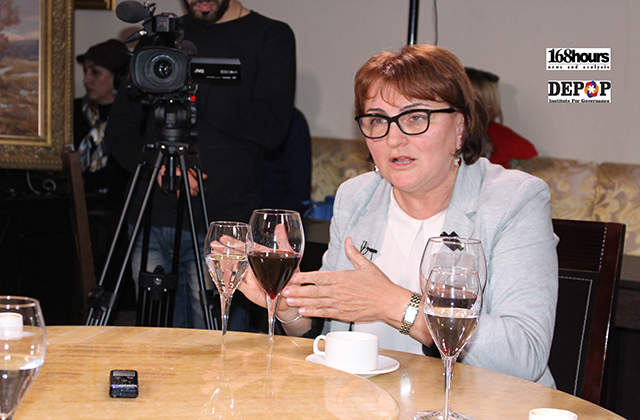
Hakob Badalyan: They didn’t gain votes, as the very authorities aren’t in competition with that opposition, if they were…
Margarit Yesayan: But which powers are in political contestation?—Equal ones. Currently there are no powers equal to the authorities.
Hakob Badalyan: As the authorities have leverages of using the laws and the court per appropriateness.
Margarit Yesayan: The authorities don’t, but the state does, stop saying the authorities.
Hakob Badalyan: If there was a state, we’d have quite a different snapshot of courts.
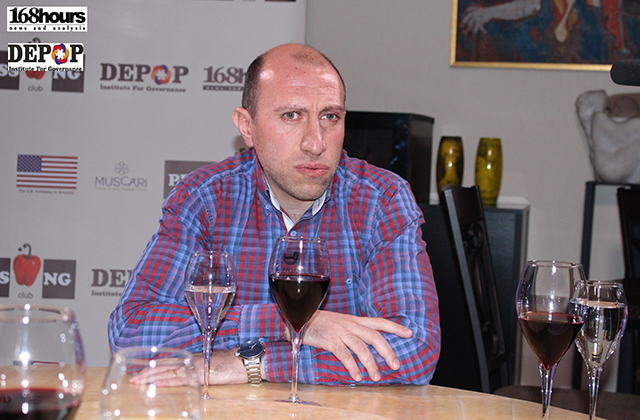
Margarit Yesayan: I consider, we’ll have in visible future.
Anahit Bakhshyan: Look, Margarit, you also say we’ll have, i.e. we don’t have it…
Hakob Badalyan: The authorities have those leverages to comment the laws as they wish, to bring decisions to the court self-willed decisions, the opposition can’t do that. The opposition simply needs to develop asymmetric approaches to this situation. Here it isn’t the issue of trust for the opposition as much the issue of trustfulness of opposition mechanisms.
Margarit Yesayan: One thing is obvious: throughout recent years opposition political powers have no enough trust reserve among the society to gain that vote of trust. That’s why we have what we have. The society casts vote for strong and trusted power.
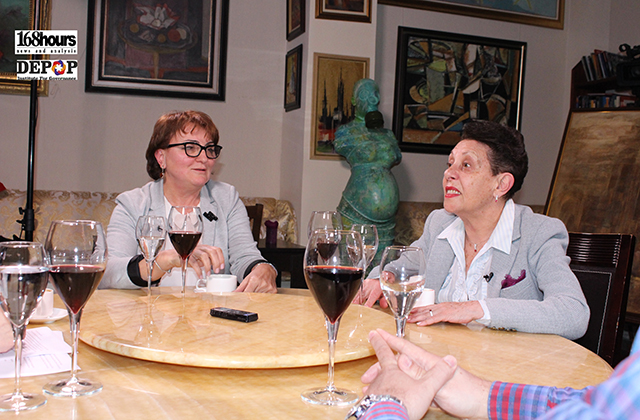
Anahit Bakhshyan: Please, don’t say people trust it.
Hakob Badalyan: You’re mistaken from the second part.
Satik Seyranyan: There were numerous publications about persons involved in “Yelk” bloc, there were statements that they cooperated with the authorities, they were called a state project, however, this didn’t prevent them to gain votes. What was it conditioned by?
Margarit Yesayan: As they were young, new faces, there were very few old faces (I apologize from all old figures) and they held a rather literate campaign. For instance, I liked their campaign a lot. They are young, with whom the society had some hopes. This should encourage us. I stated in the beginning that I’d like people had hopes with “Free Democrats” as well. Do you see what does ARF do? I’d like votes of ARF be less, as national ideology they implement, should have been its carriers, especially in the NA, as we have Artsakh issue, which currently is in a suspicious condition and many other issues, and role of ARF in the parliament is very important. I’m glad for “Yelk”, as you’ll see we’ll have a literate opposition faction.
Satik Seyranyan: Mrs. Bakhshyan, however, legislation was toughened and it didn’t become a means to fight against election bribe, we may say it had no result. What should be done and how the issue should be solved?
Margarit Yesayan: We all speak of election bribe, but no one brought any fact, we speak in the air.
Satik Seyranyan: Do you mean you haven’t given bribe?
Margarit Yesayan: For instance, I didn’t give election bribe.
Anahit Bakhshyan: You gave a present, Hermine Naghdalyan says it’s a present.
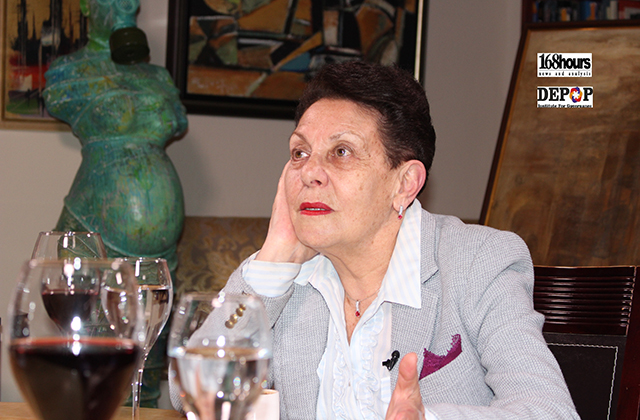
Satik Seyranyan: What should be done? The issue isn’t solved legally.
Anahit Bakhshyan: People won’t take election bribe, if they see light.
Satik Seyranyan: Light or power?
Anahit Bakhshyan: Both of them, i.e. something that they had hope: I go and vote despite everything and it’s really going to become the leadership.
Margarit Yesayan: But no one gave bribe, they went and voted for RPA, what are you speaking about?
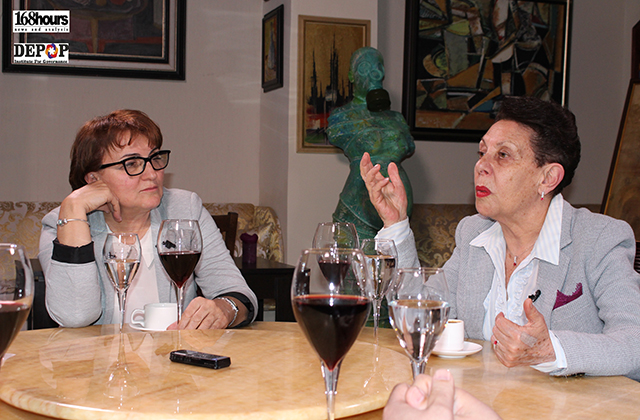
Anahit Bakhshyan: OK, Margarit, don’t get upset, they gave presents, but they gave, my dear.
Satik Seyranyan: How should the issue be solved? You’ll face the same issue in the elections for the Council of Elders.
Anahit Bakhshyan: I think it’s going to be very easy and interesting with “Yelk”, as the team is really young. I’m socializing with that youth for over a few days, we are developing the program. They are working on different directions with groups and I see what interesting analytical directions they give to create that program, i.e. a program will be introduced, that each citizen of Yerevan was not only interested, but said: I want this program to become a reality. I agree with Hakob in the sense, that political powers should find something creative and not prefer conservative RPA.
Margarit Yesayan: But conservatism isn’t bad, Mrs. Bakhshyan.
Anahit Bakhshyan: Conservatism isn’t bad, but in this case it means a marsh, from which people don’t dare to come out. They say I don’t want anyone, but I’ll take 10 thousand instead, or I’ll make the list and give to RPA headquarters (I mean school directors). We inserted this bad habit in people, a leader should appear, that it was possible to remove this.
Margarit Yesayan: You again mean saviors, it’s a political process, what leader do you mean?
Anahit Bakhshyan: A leader, the team following whom won’t leave an alternative. I don’t know when it’ll happen.
Satik Seyranyan: Hakob how should we fight against it?
Hakob Badalyan: Of course, theoretically, we may propose many mechanisms that there was law, there developed a will, the society changed, however, practically it won’t happen. Practically there are two ways out here: change economic status quo, make Armenia’s economy free, so that those financial resources weren’t in hands of the system, managed by the authorities.
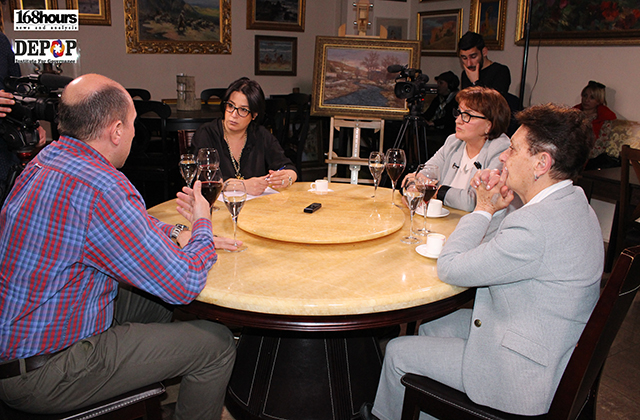
Satik Seyranyan: Not only RPA, but also “Tsarukyan” bloc, ORO were giving election bribe…
Hakob Badalyan: The ratio isn’t the same. Even in the opposition field, if anyone gives bribe, it’s clear that person depends on authorities. The latter may let them give bribe, but it won’t give a result, i.e. there is no sense of speaking about the ratio here. As long as economy isn’t free, it’s useless touching upon free electoral system, elections. In this sense economic status quo should be changed, freedom of economic relations should be changed, of course, public mentality, system of values should be changed as well.
Satik Seyranyan: The more developed the country is, the more public demands are.
Anahit Bakhshyan: Besides, he/she is becoming independent and doesn’t look to the hand of anyone to vote for.
Hakob Badalyan: When the agreement of “Yelk” bloc was being developed, the idea set forward by Nikol Pashinyan on development of institutional opposition was of crucial importance in the sense that the opposition shouldn’t be good or bad for the society, a subject of choice of evil and kind, the society should have its participation in the activity of that opposition system in the period of political cycle, and not from election to election.
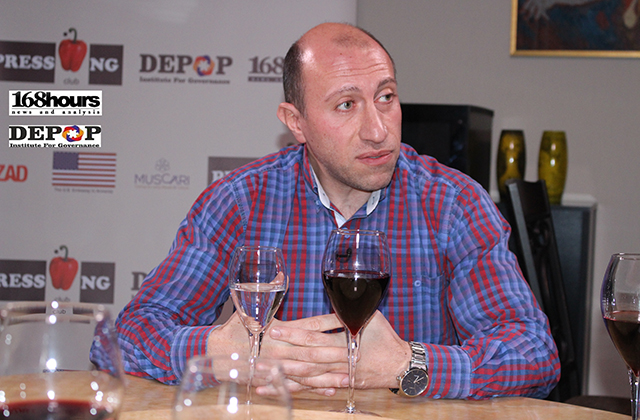
Satik Seyranyan: However, posture of political powers not participating in any elections isn’t comprehensible either, e.g. in elections of the Council of Elders…
Hakob Badalyan: It’s a part of common link and in this sense, when we, e.g. touch upon “Yelk” phenomenon, I don’t observe any here. It’s opposition more admired by the public, which gained votes. “Yelk” needs yet to show that it’s a phenomenon. In this sense I want to know whether “Yelk” has 9 or 15 mandates, and it’s interesting to know what course “Yelk” will give to the purpose brought in coalition memorandum. Will we have opposition making participation proposals to the new-quality society or even if they develop, we’ll have ordinary traditional Armenian political party. “Yelk” received carte blanche from the society, we still need to see how they’ll develop.
Satik Seyranyan: Let’s reflect to the elections of the Council of Elders. Hakob, you said you consider there is silent leadership-Tsarukyan consensus in this non-participation. Will you explain what do you condition it by, that e.g. ANC, ARF, “Free Democrats” don’t take part in these elections?
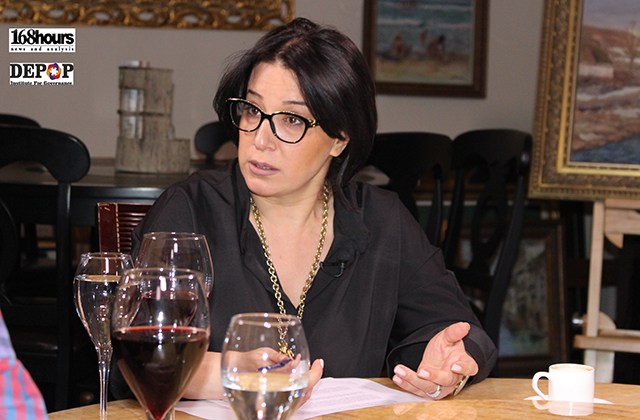
Hakob Badalyan: As they didn’t pass to the parliament and they don’t need absolute presence.
Anahit Bakhshyan: “Tsarukyan” bloc is in the parliament, why doesn’t it participate in the elections of the Council of Elders?
Hakob Badalyan: I’ll speak about Tsarukyan separately.
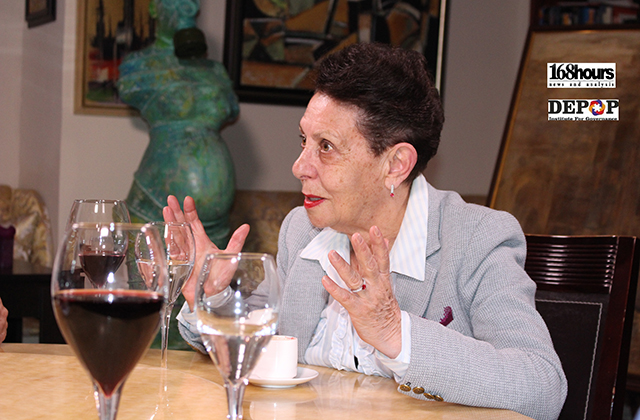
Satik Seyranyan: The same ORO, if it’s a political power, it has set an issue, it wants to participate in political processes, make some changes in the country, why don’t they participate?
Hakob Badalyan: Those powers have been defeated a few days ago, what the sense of going to another defeat a month and a half later? New defeat is inevitable, as we aren’t going to have new quality elections, and in a period of a month and a half, those elections won’t bring another mechanism of representing competition.
Satik Seyranyan: Why, e.g. they could learn a lesson and nominate Raffi Hovhannisyan as candidate for the mayor?
Hakob Badalyan: What would it change? What should Raffi Hovhannisyan change as a mayor? Raffi Hovhannisyan was a candidate for the president as well, nothing has changed, and he is already a defeated figure.
Satik Seyranyan: The society likes the winner, doesn’t it?
Hakob Badakyan: It’s also OK. If Raffi Hovhannisyan left politics long ago, maybe situation inside “Heritage” would be quite different, maybe his withdrawal would help “Heritage” to stay in political arena, as it used to be. This is a topic for a separate discussion. But what should be changed if Raffi Hovhannisyan was a candidate for the mayor? As for “Tsarukyan” bloc’s non-participation, elections of the mayor have always been followed by national elections, when there were certain developments and elections for the mayor have somewhat deafened those developments. There is nothing to discharge, in both elections Tsarukyan has performed his role of a buffer, that he implements in parliamentary elections, i.e. Tsarukayn manages a complaining mass of a few hundred, and if not Tsarukyan, that mass would be governed by the authorities. Now there is no such a necessity, i.e. there is nothing to discharge, there is no tense post-election situation and there is no sense in Tsarukyan’s participation in it.
Satik Seyranyan: But it means that he doesn’t so much stress participation in the activity of member of Yerevan’s Council of Elders.
Hakob Badalyan: Why should he if he doesn’t have the hope of taking the majority? Tsarukyan thinks very rationally: there is no need for his participation in the system, in that case why should he waste extra finances?
Anahit Bakhshyan: Especially, when their last faction was RPA’s attaché: he didn’t contradict in any issue or project.
Satik Seyranyan: Maybe finally, they’ve calculated that it’s useless to have participation in it, that it won’t be able to impact on decision-making and etc.
Anahit Bakhshyan: Those don’t see sense, who intend to hide their inactivity. Activity of the member of the Council of Elders is very important and touchable, if every member works within the framework of his/her liabilities. That’s why we should prepare for every session, project, study the documents. It’s executive leadership, no political decisions are made there, the member of the Council of Elders controls the activity of the mayor. Fields and liabilities of that control are given. I say this from the experience of “Barev Yerevan” how many issues I have personally risen: I raised 243 issues, and 30% had their solution. If you are silent, no one will speak of it. But when there is someone who speaks, works, finally you are heard. Remember N1 kindergarten in Kentron administrative district, which was closed for 5 years, now it works. If we were silent, that kindergarten would surely be owned now. There are many similar issues. Activity of the member of the Council of Elders is comprehensive.
Satik Seyranyan: Mrs. Yesayan, however rebranding was recorded in RPA at parliamentary elections, at least by involving new people, by the PM’s image, and you also say it had its role on the results. Why didn’t you do the same in the elections of the mayor or the same mechanisms will work and there is no such a need?
Margarit Yesayan: Firstly, Taron Margaryan is a very good mayor, people in Yerevan know it, we all see it, and Mrs. Bakhshyan proved in her speech when a question is raised by opposition, Mr. Margaryan considers it and gives solution to it. However, I want to reflect to a few ideas expressed by Hakob, regarding nobody says there was some phenomenon in “Yelk”.
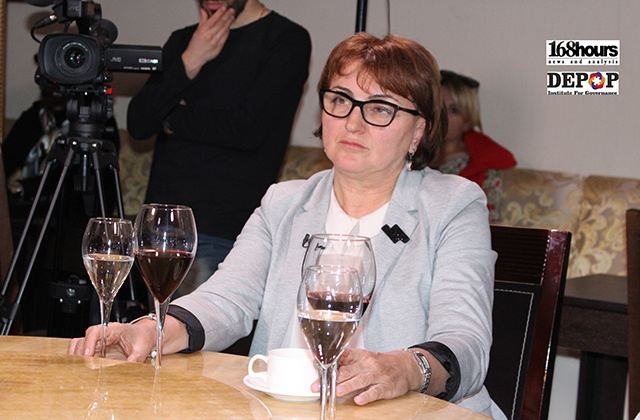
Satik Seyranyan: I meant the phenomenon of “Yelk”.
Anahit Bakhshyan: Hakob, just the contrary, said there is no such a phenomenon.
Margarit Yesayan: Yes, it lacks, as when you look which powers are participating as opposition, in those political processes, as Paronyan says [tr.-Armenian writer Hakob Paronyan] you want to think, “should I laugh or cry?”, as when ORO doesn’t gain votes, you look to the trio and think that it really should gain votes—former officials, who gathered with no shared ideologies and call on for regime change.
Anahit Bakhshyan: If we look to the RPA, it also shouldn’t have gathered votes, as 81% of people complain of it.
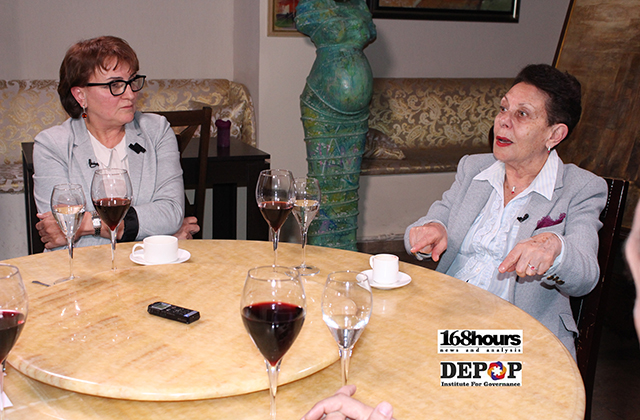
Margarit Yesayan: You speak against people, Mrs. Bakhshyan. About other political powers: how could Khachatur Kokobelyan, Hrant Bagratyan, I don’t want to continue…
Anahit Bakhshyan: Anahit Bakhshyan, Styopa Safaryan…why shouldn’t it believe?
Margarit Yesayan: But what was its name, i.e. ideology, around which they’ve gathered? What they were throwing to the society was yet the idea of passing the way.
Anahit Bakhshyan: Yes, from 3 September 2013 Khachik Kokobelyan should have taken that flag and walked about the streets.
Margarit Yesayan: That is to say, why the opposition powers didn’t gather votes? The guilt wasn’t that of RPA, as you attempted to introduce in colors, but you should seek in themselves.
Satik Seyranyan: Mrs. Yesayan Armen Badalyan, political and electoral technologies’ expert, commenting on the situation says participation of “Yelk” is necessary for RPA. He said, ““Yelk” is necessary for RPA so that the latter shows to the West that in elections of Yerevan’s Council of Elders there is a gleam of democracy.” Do you agree?
Margarit Yesayan: You know, let “Yelk” protect itself or not, this is its issue, I have my personal opinion about Nikol Pashinyan, and I personally don’t admire him. I mean that political unit succeeded to convince people. As for this or that power being necessary for RPA, it needs all powers, i.e. if we have a state, and we have, and if we go in the direction of democracy and we want elections of Yerevan’s Council of Elders to be held in compliance with democratic norms, we’ll be glad if many political powers brought their participation. Many units were developed for participation in parliamentary elections to manifest their personal, personified offense. Now they’re tired, as they realized that the society didn’t take them serious, that’s why they don’t participate in elections of Yerevan Council of Elders. It would be much better for RPA if more powers took part in these elections. Now it isn’t essential for me whether “Yelk” or other takes part in them. We’ll implement our campaign for victory of our candidate for the mayor, and if other political powers have ideas, vision, and want something to be changed in Yerevan, they should have had enough strength, resources, desire, let their offense aside and nominated in these elections. They didn’t. Do you blame us in this as well?
Satik Seyranyan: Hakob, how important are these elections and is the role of opposition not so essential there?
Margarit Yesayan: How come? A while ago Mrs. Bakhshyan said it’s essential.
Satik Seyranyan: There is another view as well, that politically they have no importance.
Anahit Bakhshyan: They aren’t inside, they don’t see how people work inside…
Hakob Badalyan: Role of opposition is important everywhere, it depends on what role opposition assumes. I disagree that the authorities have an issue regarding showing democracy in the elections of Yerevan’s mayor, as I don’t consider international organizations will particularly monitor those elections. They needed parliamentary elections, they participated in elections of the parliament with financial investment, they needed to record the fact of noiseless elections, it was recoded, and I think election of the mayor doesn’t so much interest them. In this sense, even if the authorities had the necessity to show democracy it had numerous options to create political powers at the last moment and bring them to the field. Accordingly, I don’t consider that participation of “Yelk” is only demonstrative. “Yelk” has some obligation to participate, even if it considers that pragmatically there is no any chance to take the majority out of clear reasons.
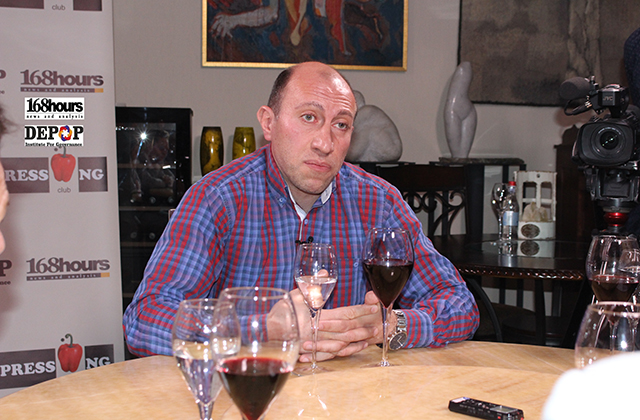
Satik Seyranyan: Isn’t there a chance?
Margarit Yesayan: The voter will decide.
Hakob Badalyan: Just a few days ago parliamentary elections were held. Does anyone consider that 1.5 month later semi-national election may be held by a different mechanism and a different result?
Satik Seyranyan: In fact, distribution of the same votes should be launched, RPA candidate should at least have as much votes, as in the parliament, together with the preferential voting system votes.
Hakob Badalyan: “Yelk” now appeared in the opposition and in the role of a new leader. That role also became a reason of numerous targets. By this role “Yelk” is obliged to participate even if it perfectly realizes that taking the majority isn’t such a rational expectancy. For instance, why doesn’t Tsarukyan participate? As representation in the Council of Elders isn’t interesting to them, they are the second in the parliament. Tsarukyan implemented its issue of the decade—made two-polar system of the authorities and the latter in these processes appeared by those two poles and we saw by that noiseless electoral process was held, in particular, when president’s election was eliminated, which was the reason of all noise.
Satik Seyranyan: What was conditioned participation of Zaruhi Postanjyan’s “Yerkir Tsirani” [Land of Apricot] in these elections? Does the party advertise itself or it really thinks it’ll win?
Hakob Badalyan: The next big election—election of the mayor, will be held in 4 years, and parliamentary elections—in 5 years, Postanjyan’s party is new and it’s an occasion to circulate the name. I think this strategic issue is solved by its participation.
Satik Seyranyan: Analyst Armen Badalyan expressed opinion that by participating in election with her party Zaruhi Postanjyan revenges from “Yelk”, as they failed to participate in union, and other political parties didn’t want to appear in “two’s company, three’s a crowd” situation. Mrs. Bakhshyan how do you explain this participation? Doesn’t Zaruhi Postanjyan overestimate capabilities of her political party?
Anahit Bakhshyan: As much as I know Zaruhi, if some idea stuck to her, she’ll take that direction…she was focused on the idea of establishing a political party.
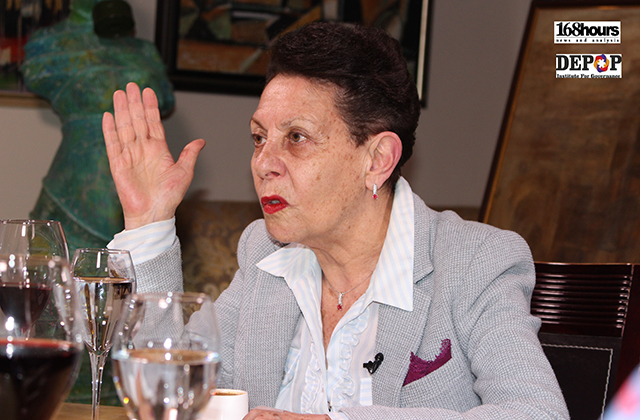
Satik Seyranyan: Thus, the issue isn’t winning in these elections.
Anahit Bakhshyan: Everyone, participating in the elections, thinks of victory.
Satik Seyranyan: Mrs. Yesayan, what was this participation conditioned by?
Margarit Yesayan: If a political union has been established, will it sit with hands folded? Maybe you ask Zaruhi its reason. Political powers participating in the elections either win or not, i.e. what’s the job of a political power—participate in elections, introduce ideas, see itself in country’s governance or somewhere else.
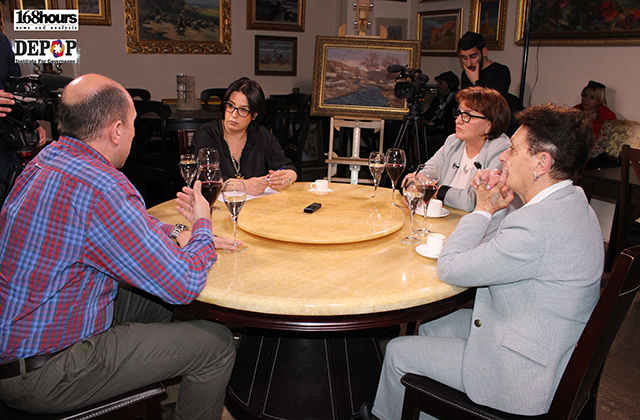
Satik Seyranyan: There is an opinion that it’s a state project to seize votes from “Yelk”.
Margarit Yesayan: The one, who sneezes, hops, creates something, RPA isn’t guilty in all that, don’t overestimate us.
Hakob Badalyan: In politics, when you want to say something to someone, they call it a state project, and those powers start to justify themselves. By that variant the authorities may easily govern the political field by saying nothing, i.e. it’s enough to spread such news and others will do the rest. This comes from absence of content in the political field, as when you can’t introduce anything to people, you have to introduce others as a state project and say to the people: look I’m not a state project. This option doesn’t help to anything, but it constantly continues, as the political field doesn’t mature, doesn’t become equal to the situation, they don’t realize what has changed in social mentality regarding IT. They remained on the level of the mentality of the 90s and by that mechanism they attempt to do politics now. In this sense the authorities have become more equivalent to the new situation, e.g. it started acting with two poles, two faces, the authorities—RPA and PAP, and by playing with these two poles it progressed more, than the rest of the political field.
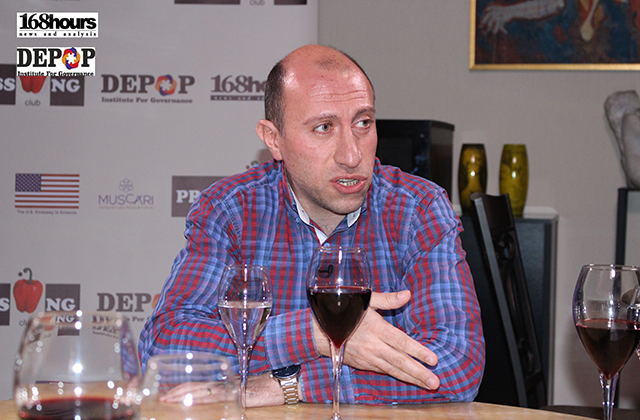
Satik Seyranyan: In some sense results of elections for the Council of Elders are somewhat clear—three will pass, RPA candidate will be the first, then “Yelk”…
Anahit Bakhshyan: Don’t say so definitely. I consider it’s early speaking of it. When you say it, people say: I can’t.
Satik Seyranyan: The contrary may be recorded as well, people may say look how it’ll pass…
Anahit Bakhshyan: I want people say, contrary to you: I want to change the regime in Yerevan.
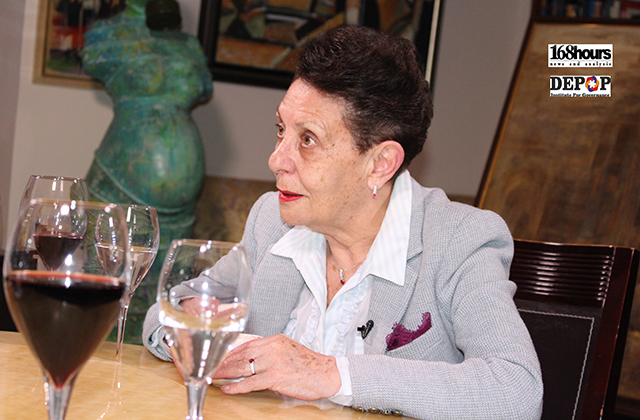
Satik Seyranyan: A citizen will again vote for Taron Margaryan, as do you consider he was a good mayor?
Margarit Yesayan: Yes, the citizen will vote not for Taron Margaryan, but for the list.
Hakob Badalyan: What’s the criterion for the mayor? Most part of Yerevan’s citizens by saying a good mayor understands cleaning the city, planting trees and flowers, but not a large infrastructure issue was solved in the city. However, in imaginations of our citizens that isn’t the city.
Satik Seyranyan: No, it’s exactly this, the whole city complains of various issues, transportation, what was going on in winter…
Hakob Badalyan: I mean there is certain mass, which estimates by those trees and plants. The rest is dissolved by other components, and the assessment for that tree and flower becomes a factor in some sense. It’s clear that they won’t vote by that only, they’ll vote by the same mechanisms, by which RPA gained 50% of votes at the parliamentary elections. I consider Taron Margaryan has a positive rating, maybe it’s Andranik Margaryan’s factor that he came from Avan administrative district with a positive “luggage” as Yerevan’s mayor.
Satik Seyranyan: Is that resource available?
Anahit Bakhshyan: The resource is available, there is a real resource in Yerevan, but when you work on the budget, you see that resource is unproductively distributed, when those resources could have been used in a more targeted manner. The role of the opposition there is really big. Let me say one ordinary fact, when we came, AMD 120 million was wasted on insertion of flags, it was reduced to 45 million, the same for other cases. I want to say that the opposition in the Council of Elders is of paramount importance. At least there are financial resources in Yerevan. Yerevan’s kindergartens are free for children, and those in other communities aren’t free.
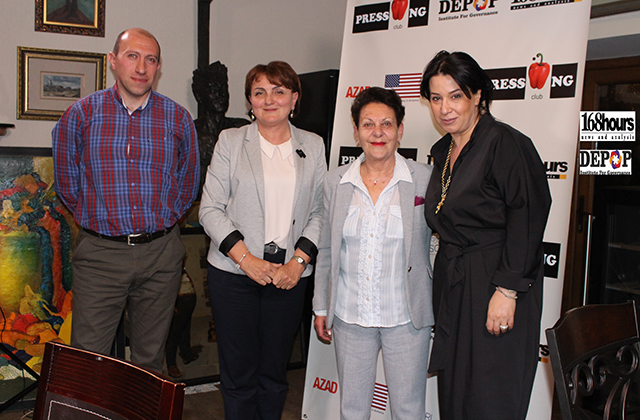
Satik Seyranyan: It’s yet an issue, how correct that change was, as it brought numerous issues with it.
Anahit Bakhshyan: It isn’t correct. I told Taron Margaryan: let’s correct this mistake.
Margarit Yesayan: Why do you say so, many families are enthusiastic about that.
Satik Seyranyan: Many families give money from the side, so saying free is very relative here…
Anahit Bakhshyan: Margarit, there is a way for the needy families. If in the whole Republic socially hard condition prevails and today, besides Yerevan, in all community kindergartens the parent pays at least 4 thousand drams, then it isn’t fair for inhabitants of the communities. Where is the parent in socially good condition?
Margarit Yesayan: You should say the contrary, let’s do so that in those communities they were free as well, but you say let’s make the free paid.
Anahit Bakhshyan: Parents are able to pay in Yerevan, put a scale for the socially needy and don’t take money from them. Do you know how much money is paid for each child from Yerevan community budget? 23 thousand drams for each child.
Satik Seyranyan: Moreover, they say it’s free, but parents pay money to some people for a place in the kindergarten, they pay extra money, i.e. the issue isn’t solved by that, corruption phenomena are observed…
Anahit Bakhshyan: 8 thousand children are waiting for their turn. How many kindergartens are there in the city, provided for rent? There is a kindergarten, the well-known Veronika’s kindergarten, which was public, it belonged to the City Hall, but it was provided for 99 years of free use to Samvel Aleksanyan’s family and it doesn’t function now.
Margarit Yesayan: So many people were given facilities for free use of 99 years, what’s wrong in it?
Anahit Bakhshyan: For 99 years, but today Samvel Aleksanyan’s family has a certificate of ownership for the building and the area, but under the contract he should restore the kindergarten. They gave it to him in 2009, some works were carried out until 2012, and after it they closed it and the kindergarten doesn’t function. That day our respectable Prime Minister with high rating, was assigning Arman Sahakyan, Head of State Property Management Department, to implement changes. Now I’ll send it to Mr. PM and ask why they gave that nice area to the family of Samvel Aleksanyan for free.
Margarit Yesayan: Is your mentioned area in the list?
Anahit Bakhshyan: I didn’t see it in the list. I want to say there are lots of such kind of things. Now if half of members of the Council of Elders enters one field and starts working…I should frankly say that Mr. Margaryan is very happy that I work there, as I do revelations. He calls back his “good” friends and says: do it, I feel shameful for you.
Satik Seyranyan: When lists of the Council of Elders were being formed, I particularly watched the RPA list of candidates—cultural figures, and etc. Why is it made by that principle? Finally, it’s immense economy, a serious political leverage, a political position. Why do they make that way?
Anahit Bakhshyan: By that elections of the Council of Elders are being discredited.
Satik Seyranyan: What expectations do they have from the mayor, the very RPA by that list, from Taron Margaryan, Nikol Pashinyan?
Hakob Badalyan: Those people from culture implement their mental activity, on the basis of which comes the mentality yet from the Soviet period, that the authorities should keep the intellectual. Those people have anticipations from the authorities and the latter keep those people, and they keep the authorities at elections of the Council of Elders and during other electoral events.
Satik Seyranyan: You are governor of the city, right? Both in economic and political senses.
Hakob Badalyan: Yerevan’s mayor is elected as the governor, i.e. people of the Council of Elders don’t immediately govern.
Margarit Yesayan: But it isn’t so that in the list of any party only intellectuals are found.
Satik Seyranyan: in RPA list mostly intellectuals are found.
Anahit Bakhshyan: Excuse me, who else could be found? Of course, intellectuals, but in our country mostly cultural figures are involved. For instance, the budget is discussed in the commissions, and the budget is a serious amount, they are projects and they don’t directly participate, they only vote and support the mayor. An entire year was required from members of “Barev Yerevan” to hint if we raise this issue, it’s our right. Most part of Republicans attacked us. The first sentence on the Law on Yerevan reads that member of the Council of Elders implements control over the mayor, but you can’t control, you can’t say: oh, you are so good, so nice…You say I looked, I checked, why is this so? Every such issue caused noisy reflection.
Satik Seyranyan: Does the citizen of Yerevan realize that he/she elects Yerevan’s governor in all senses—economic, political and all senses or not?
Hakob Badalyan: The working resource will be the person of Taron Margaryan. For some part Taron Margaryan is their friend, from their district, or some representative may have connection to Taron Margaryan, and the other really considering that Taron Margaryan is a good mayor, and no one can substitute him, and some part—through administrative resource. People with cars are many, who will say: it’s a transport, will it start operating well at once? That is to say, election will be done by this—money, district resources, administrative resource and there will be a person, who’d say Taron Margaryan is a good mayor and a good person, i.e. work will be implemented by Taron Margaryan, and it doesn’t matter who else will be in the list—Martin Vardazaryan or someone else, it doesn’t interest anyone.
Anahit Bakhshyan: That’s why during this campaign we should be able to introduce to the society what liabilities member of the Council of Elders has, from which the inhabitant may make use of. We should say that member of the Council of Elders made a really correct decision in 2015—it was inhabitants’ participation in various decision-making processes. We have defined an order, which never works. We should hint this, that besides it, member of the Council of Elders is a body controlling mayor’s activity and through him/her you may have your participation as well. For several times we attempted to provide their participation, they said: there are no chairs, there is no room, all chairs have been gathered and the area was free. It’s written that they may carry out referendum on any issue.
Hakob Badalyan: It’d be very good that our political powers distinguished in that sense: very often the same teams are working both on national elections and those of local self-government bodies, which leads to some distortion, and the citizen doesn’t involve in it.
“Pressing” Club is implemented in partnership with “DEPOP” Institute for Governance and “Azad Pharma AG” Swiss Company

Ani Keshishyan
Razmik Martirosyan
Photos—“168 Hours”

























